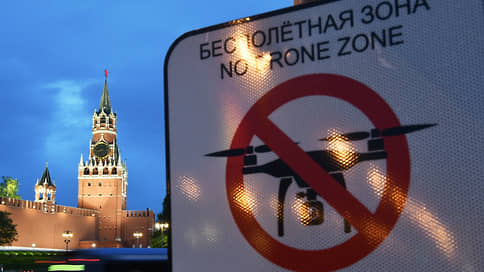Anti-drone systems can lead to communication interruptions
[ad_1]

The Ministry of Digital Development is organizing a working group with the participation of operators, fuel and energy complex companies and the State Commission on Radio Frequencies to assess the risks of communication interruptions due to the massive use of drone detection and blocking systems by businesses. Radiation can interfere, experts confirm. They believe that in order to solve problems, the authorities should introduce licensing for the use of such equipment.
Sources in the market told Kommersant that the Ministry of Digital Development is planning to create a group with the participation of the largest operators to solve the problem of interruptions in GPS and mobile communications that arise due to the spread of drone detection and blocking systems. They are purchased and installed to ensure the security of the infrastructure by large private and state-owned companies, the interlocutors of Kommersant specify. According to one of them, the Ministry of Digital Transformation is already holding “semi-closed meetings” on this issue.
The Mintsifra Kommersant confirmed plans to create a working group, which is faced with the task of “determining the possibility of using the radio frequency spectrum by means of electronic suppression.” It will include representatives of the State Commission on Radio Frequencies, representatives from organizations of the fuel and energy complex, the National Radio Association of Users of the Radio Frequency Spectrum, the National Radio Technical Bureau, telecom operators and RES developers, the ministry said.
After a major drone raid to Moscow and massive problems in the border regions, many industrial, fuel and energy and transport enterprises, as well as individual citizens, became interested in buying anti-drone systems. Guns to counter drones are sold on marketplaces (see “Kommersant” dated May 31).
Russian Railways said that the company, together with the Ministry of Transport, “is actively following the process of creating a working group” and, if necessary, will submit its issues for discussion by the State Commission on Radio Frequencies. MTS, MegaFon, VimpelCom and Tele2 declined to comment.
Anti-drone systems use narrowband jamming and RF suppression to interrupt the drone’s communication with the remote control. By themselves, they are not capable of influencing the operation of communication networks, but “the more enterprises acquire such equipment, the more likely it is that they will interfere with the operation of certain frequencies,” explains a source familiar with the problem to Kommersant.
Now almost any department or company for security purposes can purchase an anti-drone device, the price of which, depending on the power of the device, ranges from several tens of thousands to millions of rubles.
With the simultaneous operation of a large number of such devices, radiation can be generated that coincides with the licensed frequency bands on which the operators operate, which will lead to interference, up to a complete shutdown of communications, explains the interlocutor of Kommersant.
The problems of frequency separation will mainly be faced by companies that actually have to ensure the security of infrastructure from air attacks, says one of Kommersant’s sources. In his opinion, this will affect the oil, transport and construction industries: “In the future, restrictions will most likely be introduced on the use of certain frequencies for communication services in sectors where strategic facilities are located.”
Another interlocutor of Kommersant in the market says that all jamming devices used by private companies are “virtually illegal,” since they do not have the right to “use the frequencies that are used for civil communications.” To avoid problems with access to communications for ordinary residents, he believes, it is necessary for companies to obtain licenses to use such equipment.
[ad_2]
Source link





